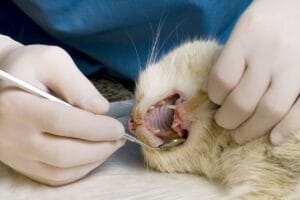Why does your Cat’s Butt Stink? Here’s 5 Reasons why!
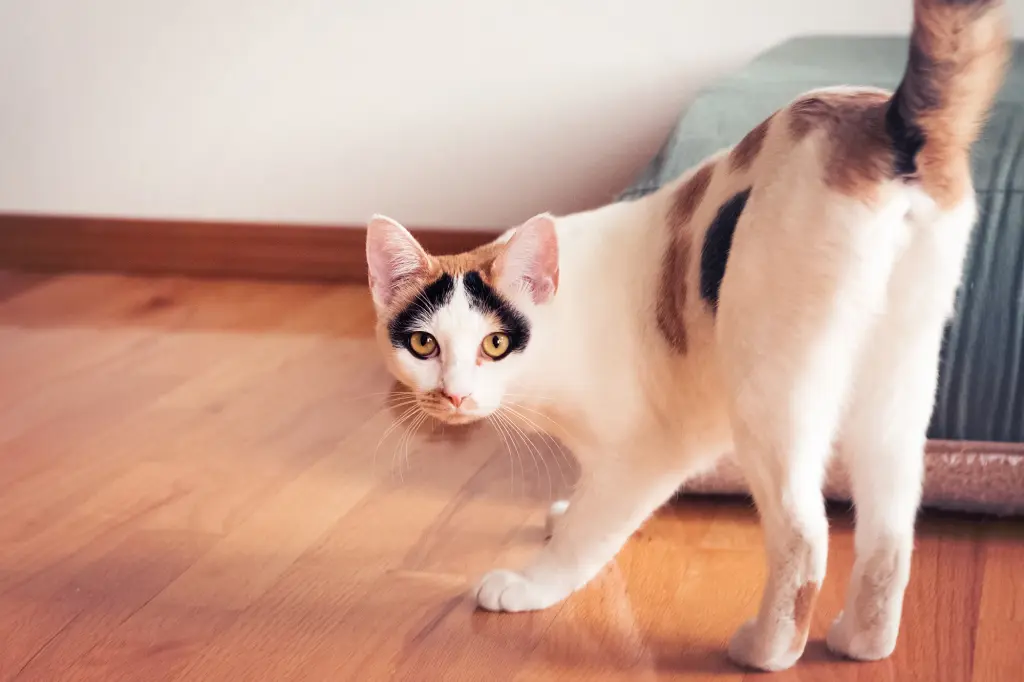
Why does your Cat’s Butt Stink? Read the article to find out!
Cats are beloved pets that offer us companionship and entertainment, but sometimes they can produce a less than pleasant odor. One common issue that cat owners face is a stinky butt. This problem can be caused by a variety of factors, including poor hygiene, diet, and health conditions. In this article, we will explore the causes of stinky cat butt and how to prevent and treat it.
Maintaining good hygiene in cats is important for both their health and your own. A stinky butt can be a sign of an underlying health problem or can cause skin irritation and infection if not addressed. Additionally, a smelly cat can make your home an unpleasant place to be.
Causes of Stinky Cat Butt
There are several reasons why a cat’s butt might have an unpleasant stink. Here are some of the most common causes:
- Anal gland issues: Cats have two small sacs located near the anus that produce a smelly fluid. These sacs can become impacted or infected, causing discomfort and a strong odor.
- Poor hygiene: Cats are typically fastidious groomers, but sometimes they need help keeping their rear end clean. If fecal matter is allowed to accumulate on the fur around the anus, it can cause a foul odor.
- Diet: The food that your cat eats can affect the scent of their poop. Certain ingredients can make the feces smell worse than others.
- Medical conditions: There are several health conditions that can cause a stinky butt in cats, including urinary tract infections, diarrhea, and inflammatory bowel disease.
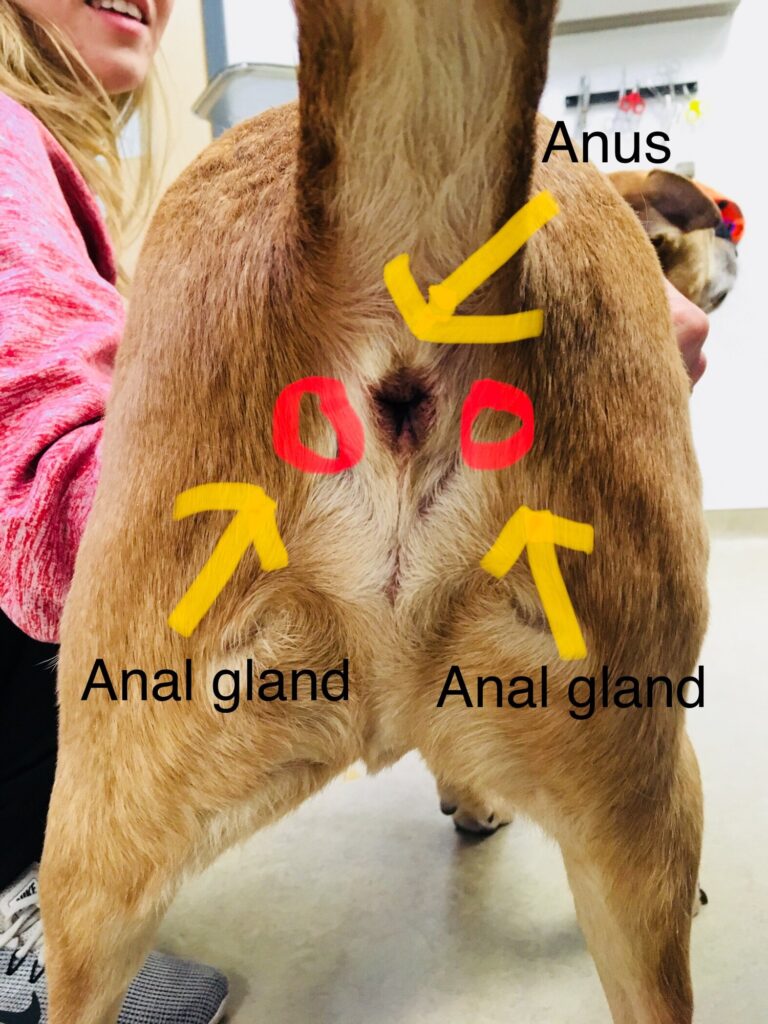
Anal Gland Issues
Cats have two small glands located on either side of the anus called anal glands, which produce a small amount of fluid that is used to mark territory and communicate with other cats. These glands can become impacted or infected, leading to discomfort, pain, and a strong odor emanating from the rear end.
Impacted anal glands can occur due to a variety of reasons, including poor diet, stress, and dehydration. Overweight cats may also be at higher risk of developing anal gland issues, as excess fat can put pressure on the glands and prevent them from expressing properly.
Symptoms of anal gland issues may include excessive licking or biting of the rear end, scooting, and a foul odor. In severe cases, cats may develop abscesses or infections, which require prompt veterinary attention.
Treatment options for anal gland issues may include manual expression of the glands by a veterinarian, dietary changes to improve stool quality and reduce inflammation, and medications such as antibiotics or anti-inflammatories. In some cases, surgery may be required to remove the anal glands if they continue to cause problems.
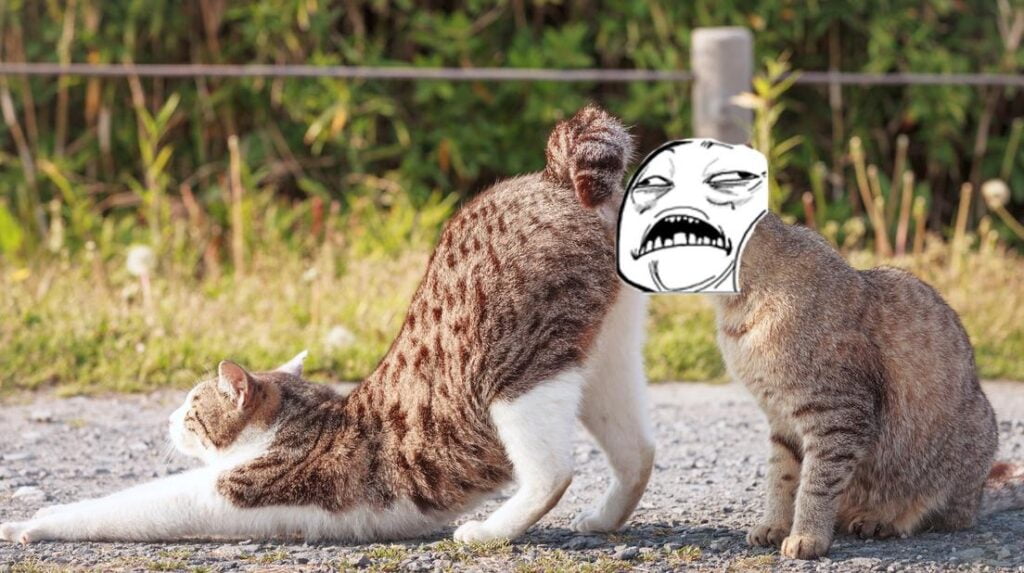
Poor Hygiene
Cats are fastidious creatures and are generally good at grooming themselves, but some may need a little extra help in maintaining good hygiene, particularly in the rear end area. When cats are unable to clean themselves properly, fecal matter can accumulate around the anus, leading to a strong odor and potential infection.
It’s important to regularly groom your cat, including brushing their coat, trimming their nails, and cleaning their rear end as needed. To clean your cat’s rear end, use a damp cloth or unscented baby wipes to gently wipe away any fecal matter. Be sure to avoid using any harsh soaps or perfumes, as these can irritate the skin and cause further problems.
Maintaining good litter box hygiene is also crucial in preventing a stinky butt in cats. Scoop your cat’s litter box at least once a day, and completely change out the litter once a week. If you have multiple cats, consider providing each cat with their own litter box to prevent overcrowding and territorial disputes.
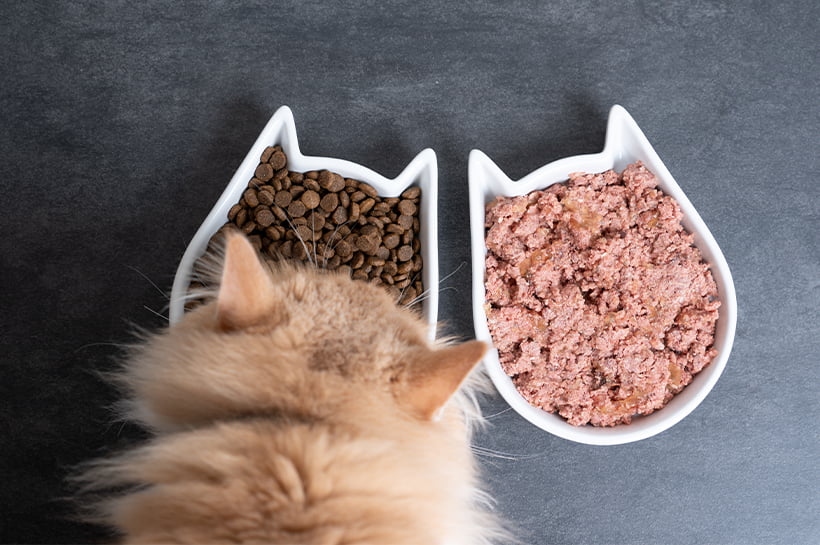
Poor Diet
A cat’s diet plays a vital role in the scent of their feces. High-quality, protein-rich diets tend to produce less smelly feces, while diets with lots of fillers and additives can lead to stronger and more unpleasant odors. It’s important to feed your cat a well-balanced diet that meets their nutritional needs, which can help keep their digestive system healthy and reduce the likelihood of stinky poop.
In addition to the type of food, the quality of the food also matters. Low-quality, highly processed foods can cause digestive problems and lead to a stinky cat butt. Some of the ingredients in these foods, such as corn and soy, can be difficult for cats to digest and can cause stomach upset, gas, and diarrhea.
Feeding your cat wet food can also help with hydration and digestion, which can reduce the likelihood of stinky poop. Wet food has a higher water content, which can help keep your cat hydrated and prevent constipation. Additionally, wet food tends to have fewer fillers and more protein than dry food, which can lead to less smelly feces.
Certain foods can also lead to a particularly unpleasant smell in your cat’s poop. For example, fish-based diets can cause a fishy odor in your cat’s stool. It’s best to avoid feeding your cat foods that are known to cause particularly smelly poop.
Wondering how to get rid of a smelly litter box quickly? Follow the link to find out how!
Health Conditions and Physical Impairments
There are also physical health conditions that can cause a smelly cat butt. Here are a few to consider:
Long fur causing matting: Cats with long hair are prone to developing mats around their rear end, which can trap fecal matter and cause a foul odor. These mats can also lead to skin irritation and inflammation. It’s important to regularly groom your cat, especially around their rear end, to prevent mats from forming. If you notice mats or other signs of irritation, take your cat to the groomer or vet for professional help.
Arthritis: Cats with arthritis may struggle to groom themselves properly, which can lead to poor hygiene and a smelly butt. They may find it difficult to reach around to their rear end, making it harder to keep clean. If you suspect that your cat has arthritis, it’s important to take them to the vet for an evaluation. Your vet can recommend treatment options to help manage their pain and improve their mobility, which can in turn improve their ability to groom themselves.
Being overweight: Being overweight can also contribute to poor hygiene and a stinky butt in cats. Excess weight can make it difficult for cats to groom themselves properly, especially in hard-to-reach areas. It can also lead to diarrhea and constipation, which can exacerbate the problem. If you suspect that your cat is overweight, it’s important to talk to your vet about a weight loss plan. This may involve adjusting their diet and increasing their exercise, which can improve their overall health and hygiene.
Medical Issues
Stinky cat butt can also be a symptom of underlying health conditions. Some of the medical issues that can cause a cat’s stool to become particularly pungent include inflammatory bowel disease, intestinal parasites, and infections. These conditions can also cause diarrhea or constipation, which can exacerbate the problem.
Inflammatory bowel disease is a chronic condition that affects the digestive tract. It can cause inflammation, diarrhea, vomiting, and weight loss, and can also lead to a stinky cat butt. Intestinal parasites, such as worms and giardia, can also cause digestive issues and smelly poop. These parasites can cause diarrhea, weight loss, and other health problems if left untreated.
Urinary tract infections (UTIs) are another possible cause of a smelly butt in cats. UTIs can cause changes in the pH balance of the urine, making it more alkaline, which can result in a strong and unpleasant odor. Cats with UTIs may also have difficulty urinating, which can lead to straining and dribbling of urine, resulting in urine scalding and irritation of the skin around the anus. This irritation can make the area more susceptible to bacterial infections, which can further contribute to the smell.
Infections, such as bacterial or viral infections, can cause diarrhea, vomiting, and other symptoms, and can be serious if left untreated. If you notice that your cat’s stool has a particularly strong or foul odor, it’s important to take them to the vet for an exam. Your vet can help determine if there is an underlying health condition that needs to be addressed. They may recommend diagnostic tests, such as blood work or fecal exams, to help determine the cause of your cat’s smelly poop.
Prevention and Treatment for your Cat’s Stinky Butt
Removing the stink from a Cat’s butt involves maintaining good hygiene and ensuring your cat has a healthy diet. Regular grooming, including cleaning your cat’s rear end, can help prevent anal gland issues and keep your cat’s fur and skin healthy. Feeding your cat a high-quality diet can also help reduce the likelihood of stinky poop.
If your cat is experiencing anal gland issues or other health conditions, treatment options will vary depending on the underlying cause. If the smelly odor persists even after diet changes and regular cleaning, it is time to consult a professional. Your vet may recommend antibiotics, a change in diet, or surgery in some cases.
Conclusion
Do you now know why does your cat’s butt stink?
In conclusion, a stinky cat butt can be a sign of several underlying issues, including anal gland problems, poor hygiene, diet, and health conditions. Maintaining good hygiene and feeding your cat a balanced diet can help prevent stinky poop. If your cat has a persistent issue with a foul odor, it’s essential to take them to the vet to determine the underlying cause and appropriate treatment.


